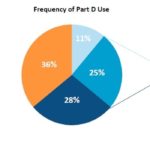5 things Women 55 and Up Need to Know About Mammograms
5 things Women 55 and Up Need to Know about Mammograms
As a woman in her 50s, I understand that no woman looks forward to getting her annual mammogram. However, mammography is and should be an important part of every woman’s preventive health routine. Perhaps more than any other type of screening (as we’ve heard from thousands of patients), breast screening generates more anxiety than any other type of exam. For most women, peace of mind comes from an all clear result. For those who discover an issue, finding it early (at its smallest possible size) provides easier and better treatment options. Simply put, early detection is too easy to achieve, and too important to ignore.
With that in mind, we at Solis Mammography have done a lot of research to better understand. Why nearly 50 percent of women avoid something covered by their insurance and so clearly important to their health. In most cases, when we sit down and talk with these women one on one. We find that knowledge is the key to getting them to make a change and schedule their mammogram.
5 Tips for Women Age 55 and Up
To that end, we offer the following 5 tips for women age 55 and up:
- Research by physician-led organizations have proven, time and again, that annual mammograms for women between the ages of 40 and 64 are key to earlier detection and less invasive (and costly) treatments.
- If you’re 40 or older, and not experiencing any symptoms, you don’t need a doctor’s referral for a mammogram. And can choose the imaging facility you prefer. That freedom means you should put as much care and thought into your decision as you would for any healthcare provider.
- A woman’s breasts are always changing. Breastfeeding, hormone fluctuations, menstrual cycles, menopause … all affect women’s bodies and breast health. Changes in the body also mean changes in the breasts.
- In 2016, as a result of the largest study ever on screening mammography outcomes, Dr. Cindy S. Lee, assistant professor in residence at the University of California San Francisco. And her research team found that there is no clear cutoff age to stop breast cancer screening. The findings support the argument that the decision to stop screening should be informed by an individual’s personal and unique health.
- While discussing your breasts may seem awkward, women need to be open about communicating any changes like dimpling, puckering, discharge, or other unusual attributes not seen before. To that end, monthly self-exams are key not only for breast masses, but to observe any changes in the breast over time.
At Solis Mammography, we get it. No one really wants a mammogram. What women want, and deserve, is the peace of mind that comes from knowing they’re all clear for another year, or if an anomaly is discovered, it’s found early enough that treatment options are as minimally invasive as possible. Remember – when it comes to preserving breast health, the best offense is a good defense. Schedule your annual mammogram today.





































